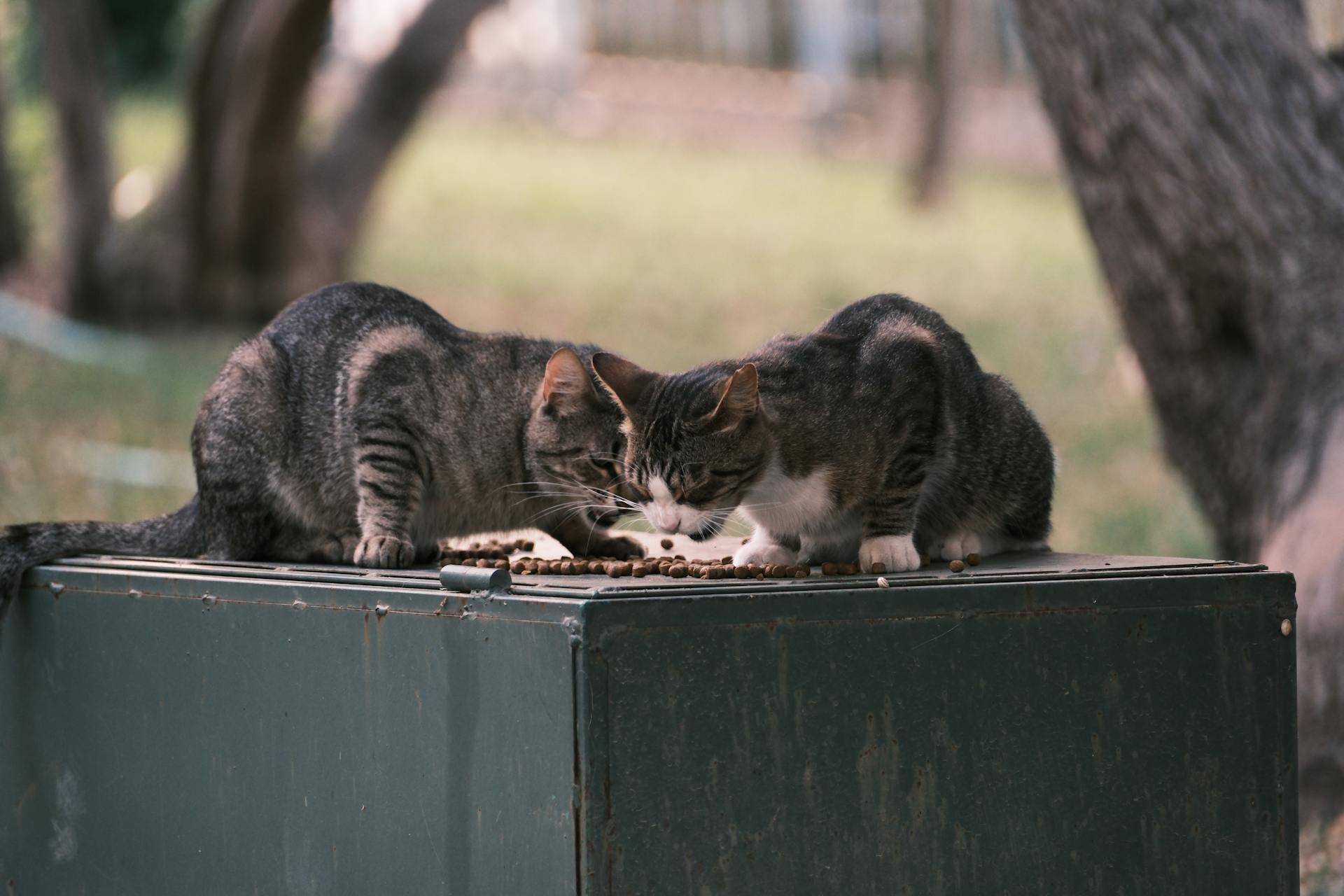
What Can Cats Not Eat? Toxic Things for a Cat to Eat
Cats, with their curious nature, often find themselves in precarious situations. Whether it’s food left on the counter or common household items, some things that seem harmless to us are actually toxic for cats. As kitten season approaches, it’s crucial for pet owners to be aware of potential dangers that could lead to emergency vet visits. Being informed is the first step toward protecting your feline friend from certain foods and toxic household items.
When cats ingest toxic foods or objects, the results can range from mild digestive upset to life-threatening complications. It’s important for pet owners to be able to recognise the signs of poisoning, which can include vomiting, diarrhea, lethargy, and seizures. According to PetSure data, the costs of emergency treatment for ingestion-related incidents can be substantial, underscoring the importance of prevention. Pet Insurance Australia discovers common toxic foods and everyday household items that pose a risk to your cat and how to keep your furry companions safe.
Key Takeaways
– Many common household foods, including chocolate and onions, are dangerous for cats and can lead to expensive emergency vet bills.
– Non-food items, such as rat bait and human medications, also pose a significant ingestion risk for cats, especially kittens.
– Proactive prevention and cat insurance can protect your cat from ingestion-related risks and minimise emergency vet expenses.
Foods that are Dangerous or Toxic to Cats
Food and cats go hand-in-hand and like dogs, cats are susceptible to harmful effects from ingesting certain foods. While most cat owners rarely see their feline friends begging for a snack as much as their canine counterparts, cats still find themselves drawn to foods that can cause severe health issues. So, what is poisonous to cats? Here’s a look at some of the most toxic foods for cats.
Chocolate – Although cats aren’t typically attracted to sweet flavours, the smell of chocolate can still entice them. Chocolate contains theobromine, which is toxic to cats. Even a small amount can cause vomiting, increased heart rate, and, in severe cases, seizures. PetSure data reveals that the average cost of treating a cat for chocolate ingestion is around $598*, with some cases exceeding $1,500*.
Onion and Garlic – Onions and garlic are common kitchen ingredients but are highly toxic to cats. They contain compounds that can damage cats’ red blood cells, leading to anemia. Even small amounts of food, such as seasoning or cooked dishes, can be harmful.
Raw Eggs, Raw Meat & Bones – Raw foods may seem natural, but they risk bacterial infections such as salmonella or E. coli. Raw eggs can also lead to biotin deficiency in cats, which can affect their skin and coat. Furthermore, whether raw or cooked, bones can cause choking or gastrointestinal blockages.
Alcohol and Raw Dough – Even small amounts of alcohol can be lethal to cats, leading to liver failure or respiratory distress. Additionally, raw dough containing yeast can expand in a cat’s stomach, potentially causing life-threatening conditions.
Grapes and Raisins – While more commonly associated with dogs, grapes and raisins can also be toxic to cats. Ingesting them can lead to kidney failure, with symptoms such as vomiting, lethargy, and loss of appetite.
Caffeine – Caffeine is a stimulant that can cause rapid breathing, heart palpitations, muscle tremors, and even death in cats. Coffee, tea, and energy drinks should always be kept out of reach.
Milk and Other Dairy Products– Despite the popular image of cats enjoying a saucer of milk, cats are lactose intolerant. Dairy products can cause digestive upset, including diarrhea and stomach cramps.
Other Common Toxic Items That Your Cat Should Not Eat
Apart from food, several other household items can be dangerous for cats, particularly to curious kittens.
Rat Bait – Rodenticides are deadly chemicals for both rodents and cats. Ingesting rat bait can cause internal bleeding, which can be difficult to detect, and require emergency care. In 2023, the average vet bill for rat bait ingestion was $1,253*, with some cases costing over $12,900*. It’s important to keep rat bait out of reach of your cat and to be aware of the signs of poisoning, which can include weakness, difficulty breathing, and pale gums.
Human Medications – Many human medications, such as ibuprofen or acetaminophen, are toxic to cats. Even small doses can lead to severe reactions, with treatment costs averaging $1,863* for medication ingestion cases.
Craft Objects – Cats are attracted to strings, ribbons, and small objects. Unfortunately, if these items are swallowed, they can cause dangerous intestinal blockages. Surgery to remove such objects can be costly, with some claims reaching as high as $4,704*.
Top Tips to Keep Your Cats and Kittens Safe Around The House
Keeping your cat safe involves more than just feeding them the right food. It’s crucial to cat-proof your home and be mindful of their environment, especially if they’re indoor cats. Here are some top tips to keep your feline companions safe:
Out of Sight, Out of Reach: Store toxic items like chocolate, medications, oil and rat bait in places your cat can’t access.
Pet-Safe Pest Control: Use enclosed bait stations or pet-safe alternatives for pest control.
Supervised Outdoor Time: If your cat spends time outdoors, ensure the environment is safe and free from toxic plants or substances.
Seal Your Containers: Use sealed containers for foods and items that could pose a risk to your cat.
Cat Insurance: Consider cat insurance to cover ingestion-related emergencies and avoid unexpected veterinary bills.
FAQs
Can cats eat spring onion?
– No, spring onions are toxic to cats and can cause hemolytic anemia, damaging their red blood cells.
Can cats have grapes?
– No, grapes and raisins are highly toxic to cats and can lead to kidney failure.
Should cats eat bacon?
– While small amounts of cooked bacon may not be immediately harmful, it is high in salt and fat, making it an unhealthy choice for cats.
What human food can cats eat?
– Cats can safely eat small amounts of:
- Cooked meat (chicken, turkey)
- Fish (plain, cooked, and boneless)
- Some vegetables like carrots and peas (cooked)
- Cat-safe fruits like watermelon or cantaloupe (without seeds)
The CAT Ate What? – Top Ingestion Claims for Cats
As kitten season hits Australia, many homes will soon be filled with tiny paws and curious explorations. While it may seem amusing when your cat sneaks a snack or investigates household items, the consequences can be severe. Common ingestion claims include toxic food like chocolate and non-food items like rat bait and medications. According to Pet Insurance Australia, emergency treatments for ingestion can result in vet bills ranging from $1,500 to $12,900, depending on the severity of the incident.
By understanding these risks, considering cat insurance, and taking preventive measures, cat owners can avoid costly vet bills and ensure their furry friends stay safe and healthy.
*Based on PetSure claims data, 2023.
Nadia Crighton is a renowned and accomplished professional in the fields of Journalism, Public Relations, and Writing, with an extensive career spanning over 25 years, 20 of which have been dedicated to promoting the health and well-being of pets.
Get the latest Pet Insider Tips & News
We offer award-winning* pet insurance policies to protect your furry friend’s health and wellbeing. Get a quote today and give your pets the care they deserve.
Archives
Categories
- Cat Care (66)
- Cats (3)
- Dog Care (130)
- Guides (29)
- Health and Nutrition (203)
- Lifestyle and Activities (222)
- Media Release (40)
- Pet Care (256)
- Rescue Dogs (1)


